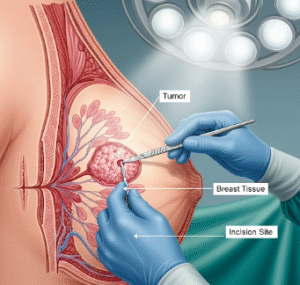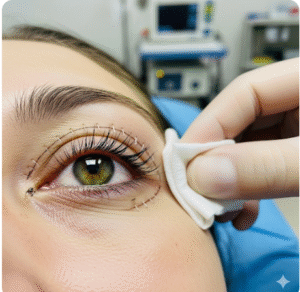Overview
Myelofibrosis is a rare bone marrow disorder in which the marrow is replaced with fibrous scar tissue, leading to impaired blood cell production. In Korea, the condition is managed through advanced diagnostic methods, targeted therapies, and hematology care at major hospitals such as Seoul National University Hospital, Asan Medical Center, and Samsung Medical Center. Early detection and treatment help improve quality of life and reduce complications.
What is Myelofibrosis?
Myelofibrosis is a chronic myeloproliferative neoplasm that causes bone marrow fibrosis, abnormal blood cell production, and often enlargement of the spleen (splenomegaly). It can occur as primary myelofibrosis (PMF) or secondary to other blood disorders like polycythemia vera or essential thrombocythemia. The disease can affect adults of any age but is most common in those over 50.
Symptoms
- Fatigue and weakness from anemia
- Shortness of breath
- Enlarged spleen causing abdominal discomfort or fullness
- Easy bruising or bleeding
- Night sweats
- Fever or weight loss
- Bone pain in some cases
- Recurrent infections
Causes
- Mutations in genes such as JAK2, CALR, or MPL affecting blood cell production
- Primary myelofibrosis often arises spontaneously
- Secondary myelofibrosis develops from pre-existing blood disorders
- The exact trigger for primary myelofibrosis is unknown
Risk Factors
- Age over 50
- Male gender (slightly higher incidence)
- Pre-existing blood disorders (polycythemia vera, essential thrombocythemia)
- Genetic predisposition (rare)
Complications
- Severe anemia requiring frequent blood transfusions
- Enlarged spleen causing discomfort and affecting appetite
- Increased risk of infections due to low white blood cells
- Bleeding or clotting disorders
- Transformation into acute myeloid leukemia (AML) in some cases
- Fatigue and reduced quality of life
Prevention
- There is no known prevention for primary myelofibrosis
- Avoiding exposure to harmful chemicals and radiation may reduce risk for secondary forms
- Early evaluation of blood abnormalities for individuals with pre-existing hematologic conditions
- Regular monitoring for symptoms such as fatigue, bruising, or abnormal blood counts
Treatment Options in Korea
Korean hospitals provide comprehensive management for myelofibrosis, combining medication, supportive care, and advanced therapies.
- Diagnosis
- Complete blood counts (CBC) to detect anemia, leukopenia, or thrombocytopenia
- Bone marrow biopsy to confirm fibrosis and abnormal cell proliferation
- Genetic testing for JAK2, CALR, MPL, and other mutations
- Imaging for spleen and liver enlargement
- Medical Treatments
- JAK inhibitors (e.g., ruxolitinib) to control symptoms and reduce spleen size
- Supportive care: blood transfusions for anemia, medications for infection prevention
- Hydroxyurea to reduce high blood counts in some cases
- Symptom management for fatigue, night sweats, and bone pain
- Advanced Treatments
- Allogeneic stem cell transplantation for eligible patients
- Participation in clinical trials for novel therapies and targeted agents
- Specialized Hospitals in Korea
- Seoul National University Hospital – Hematology and stem cell transplantation programs
- Asan Medical Center – Advanced diagnostics, JAK inhibitor therapy, and multidisciplinary care
- Samsung Medical Center – Comprehensive management including supportive care and clinical trials
- Yonsei Severance Hospital – Long-term follow-up, rehabilitation, and patient counseling
- Long-Term Follow-Up
- Regular blood tests and genetic monitoring
- Spleen size assessment via imaging
- Management of complications such as anemia, infections, and splenomegaly
- Psychological support and patient education













